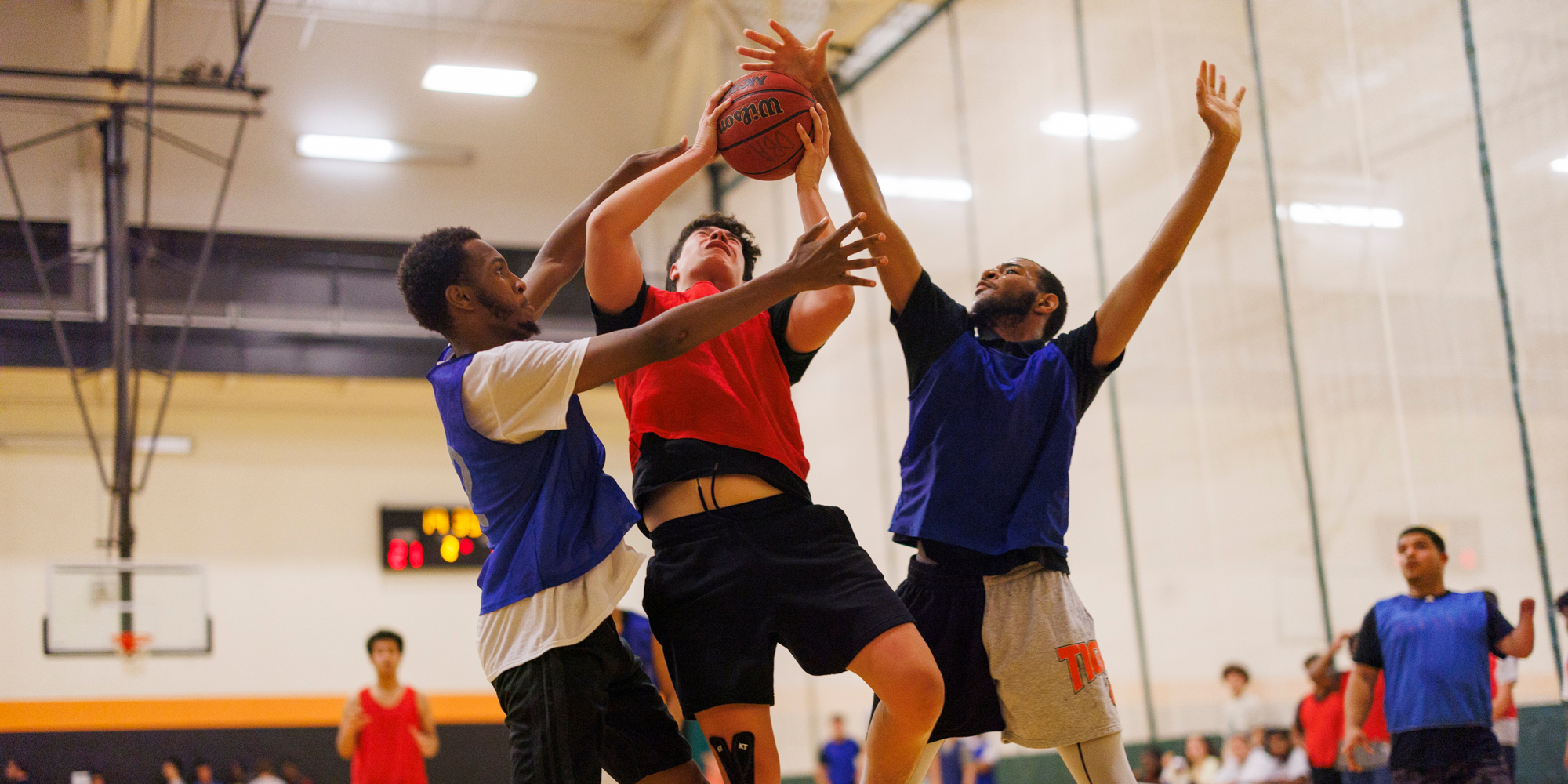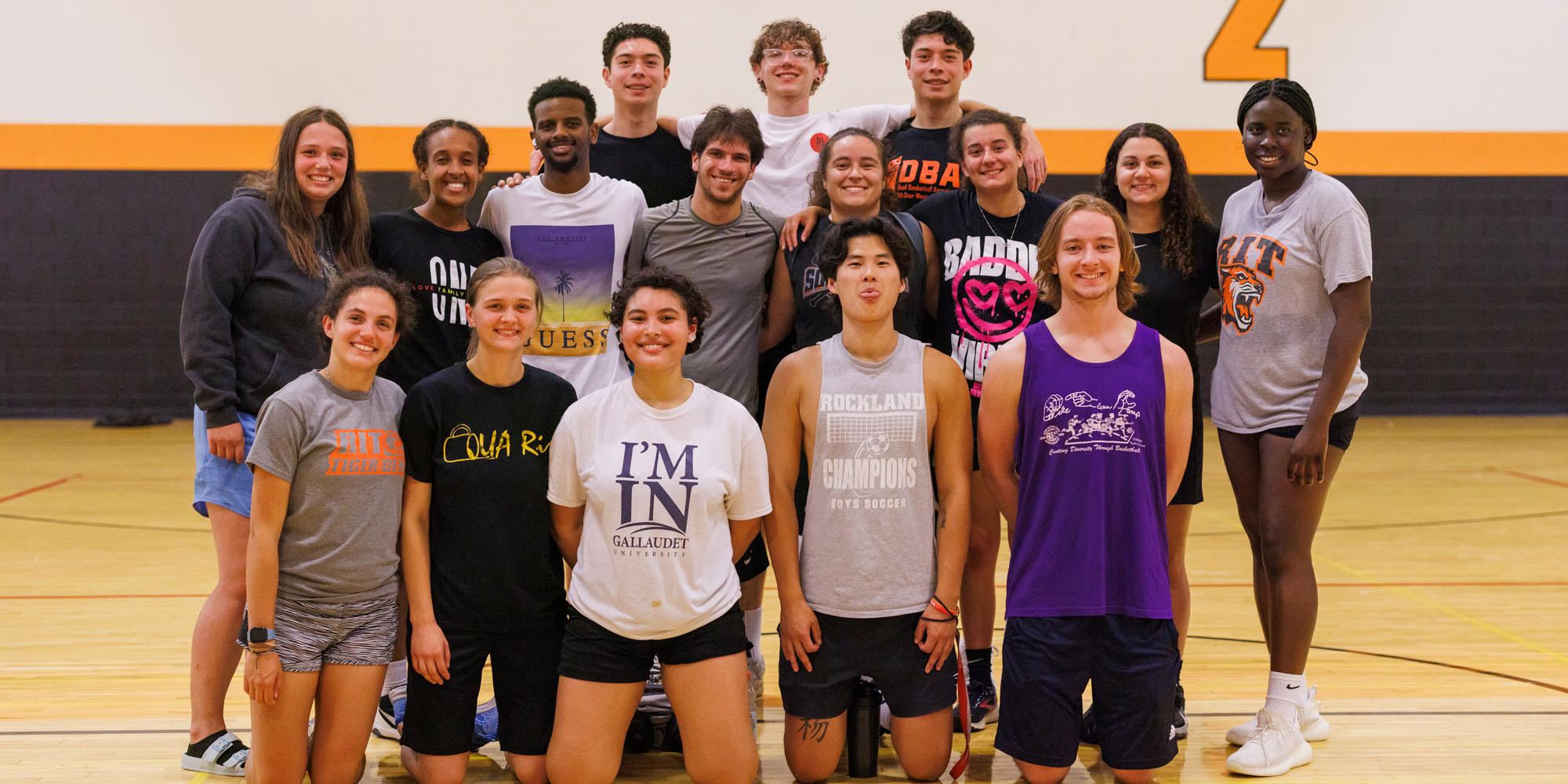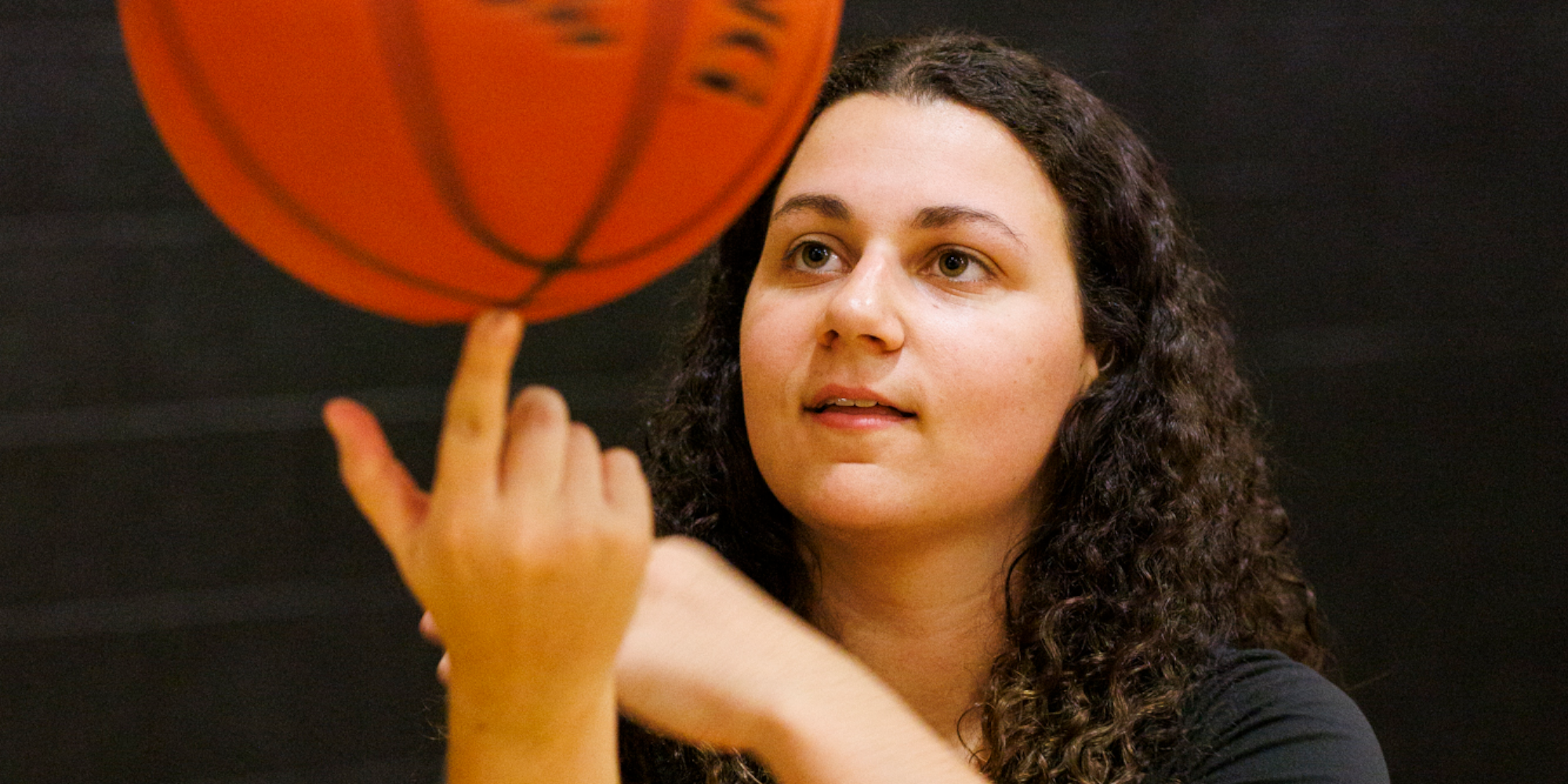A Silent Slam Dunk: RIT’s Deaf Basketball Association
by Amy L Roberts | published Nov. 1st, 2023
It is halftime and the referee waves their hands in the air to signal players to stop playing. The players walk over to the sidelines where they huddle and sign their next play to each other.
At RIT, the Deaf Basketball Association (DBA) attracts students for many reasons, including love for the sport, the experience or just the chance to sign and socialize with others in the Deaf community. Although being Deaf is not a requirement, Deaf and hard-of-hearing communities make up a majority of its members.
So, What is DBA?
Jamie Antal, a second year Computer Science student and this year’s DBA president, gave a brief history and description of the organization.
“DBA was founded in 1998 ... in order to provide Deaf people the opportunity to play basketball and socialize,” Antal signed.
The organization as a whole is also quite diverse, which is something Antal really enjoys about the DBA. The association is open to many different groups of people and contains students from lots of backgrounds, majors, ages and more. Students, staff and alumni all have the opportunity to play.
“Although DBA is a Deaf club, we also welcome other signers, interpreting students and anyone who would like to come to socialize, play basketball and hang out,” Antal signed.
"Although DBA is a Deaf club, we also welcome other signers, interpreting students and anyone who would like to come to socialize, play basketball and hang out."
This organization in particular only operates during the fall semester. Games typically take place at the courts in the Hale-Andrews Student Life Center (SLC) every Friday from 6 p.m. to 9 p.m and Saturday from 1 p.m. to 4 p.m.
Spectators are free to watch from the sidelines, the overhead track above the courts or from the comfort of their homes. For the community, it is important to ensure that families can view the games remotely, so the DBA livestreams every game on its Facebook page.
At the start of each season, DBA teams participate in a draft to recruit players. RIT alum and former DBA player Andrew Parent explained the draft process.
“Basically, we try out, and then we play and someone observes us. Then they're [going to] draft us and pick who's going to be on whose team,” Parent explained. “After, we just start games until the end of the semester.”
Men and women do not play against each other before the draft, as they have separate sections for teams and games. In order to choose referees, the DBA creates a sign-up sheet and conducts interviews — though most referees are also DBA players, that is not always the case.
Upon joining the DBA, members must pay a $20 fee to pay for their jerseys. Practices are not required, but teams can schedule them if the players wish to do so.
A Family and a Community
Some people see DBA as more than just a game: it is also a family made up of those in the community.
“It's been great to take advantage of the opportunity of meeting new people and going to see one another and those long-lasting friendships that came from the association,” Antal clarified.
The association is a safe space for students who need support from the Deaf community and desire a place to meet their peers. Marchella Tino, a third year Economics student and the first pick for this year’s women’s draft, agrees and provides a similar perspective.
“I enjoy playing the games with my teammates and meeting new people," Tino stated. "Basketball is my favorite sport and I get to interact with Deaf and hard-of-hearing people like me. I'm glad I get to be a part of that.”
"Basketball is my favorite sport and I get to interact with Deaf and hard-of-hearing people like me. I'm glad I get to be a part of that."
Bobga Tate, last year’s DBA president, specifically loves the diversity of the group.
“I enjoy it because it's really good to meet old people, new people and learn the different skill levels that everybody has," Tate explained. "Some people have never played before. Some people have experience, so it's really interesting to work with everybody at the different levels.”
“For me, it’s just about the team and improving our skills, giving each other feedback and knowing what to do during the game,“ Parent said.
The DBA is also something fun to keep students occupied in their free time without much stress.
“It's no pressure, no stress. I like that about DBA,” Tate expressed.
To highlight the effort of its players, the DBA acknowledges its "Players of the Week" and top scorers on its social media. Each season lasts until mid-to-late November, when the association hosts a playoff tournament to declare a champion. After the semester ends, students often join other Deaf sports organizations on campus. The Deaf Volleyball Association, for example, operates in the Spring semester for those interested in continuing Deaf sports.






